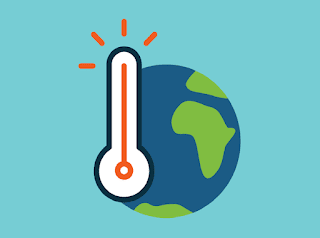Imperativeness of Renewable natural resources on Nigeria Economy
Renewable natural resources refer to biological assets capable of indefinite regeneration on a human time scale so long as the prevailing environmental, social, political, economic and management conditions permit. Examples of such natural resources are arable land, forest, water resources (including aquatic life), rangeland/pastures, biodiversity, wetlands and wildlife. Depending on management and use, these resources can be replenished, maintained, improved or degraded. Therefore, the renewability of renewable natural resources is not automatic and cannot be taken for granted.
Over two decades, Nigeria's economic performance has fallen acutely short of growth potentials. Rapid growth in the late 1970s occasioned by oil boom was short-lived and followed by a sharp decline in real per capita GDP from the late 1970s-1984(CBN). From 1992-2002, growth in per capita GDP occurred marginally in 2 years only, stagnating or falling in other years. Hence, there is need for diversification of economy particularly into renewable natural resources because they are renewable and cheap. Renewable resources are abundant and widely distributed within 923,768km2 area of Nigeria.
M. S. Swaminathan said If conservation of natural resources goes wrong, nothing else will go right. Food production raw materials for industries, job creation, source of income for majority, foreign direct investment, sustainably and environment friendly power generation for house hold and industries to mention few are the benefits of renewable resources. In Nigeria, the sustainability of growth and poverty reduction hinge critically on these resources since they constitute the productive base for agriculture, forestry, fishery and wildlife, upon which the livelihoods, employment and incomes of a large majority of Nigerians can depend on if well harnessed.
“Ti ounje bakuro ninu ise ise buse as Yoruba do say meaning if the issue of food is removed from poverty it is not worth calling poverty. CBN Statistical Bulletin in 2004 reported that Agriculture, including forestry and fisheries account for not less than 35% of GDP and is the backbone of rural livelihoods” This is a huge figure statistically. The percentage of food production taken by quantity of edible aquatic organisms such as tilapia, cat fish, prawn and other edible crustaceans, mush rooms, snails is very high. A number of people in the rural area are involved in the production and marketing of food. Importation affects economy, reduce values and exchange power of money of a country. Food commodities produced locally can be exported and improves economy.
The Nigeria Bureau of Statistics (NBS) said Nigerias unemployment rate rose from 14.2% To 18.8% in 2017. Nigerias labor market becomes competitive not because employers are not there but the number of available candidates for a job several times available spaces. Employment opportunity is created directly and indirectly from the point of exploitation to transportation of raw materials to the industry where it will be transformed to final product. A number of persons will be involved in the packaging and distribution to both small and large scale marketers. This reduces the number of unemployed citizens. They are not only employed they pay tax which accounts to internally generated revenue.
Endemic and rare species of flora and fauna is something that can be marketed internationally through tourism and exportation. Foreign direct investment from multi-nationals, NGO and capitalist who will invest and partner with the government to develop our protected areas which are usually in remote areas where resources are abundant in an untampered state. As Costa Rica based ecologist Daniel Janzen puts it, industries will not survive if there are no happy people around its perimeter” hotels for tourists accommodation, mining and other industries related to exploitation of natural resources provides infrastructures such as roads and potable water as part of their cooperate social responsibility to their host community. These improves socio-economic development of local communities.
Renewable energy from solar or biomass for example, plays an important role in meeting energy needs of industries in both rural and urban areas. Nigeria is blessed with a large amount of renewable natural resources that will reduce the poverty level and aid sustainable development when fully developed and utilized. Because renewable resources are constantly being replenished from natural sources, they have security of supply. All economic activities and processes require energy. This effectively makes energy a critical primary factor of production. At local level, renewable energy facilitates economic development by improving productivity and enabling local income generation through improved agricultural development (irrigation, crop processing, storage, and transport to market). At national level, it propels economic development by serving as the launch pad for industrial growth, via transportation and communications, providing access to international markets and trade are very important factors in boosting economic growth.
Raw materials from natural sources contributes to sustainable development by reducing deleterious emissions and replacing fossil raw materials that gives unhealthy by-products which will cause the state billions of naira to revert when the problem results. Exportation of these raw materials to other countries increases foreign exchange volume and strengthens the bilateral relationship between Nigeria and other countries. These raw materials are affordable and can be harnessed by micro small medium enterprises (MSMEs). It reduces their cost of input and maximizes their profit.
The quantity of food production, raw material generation, job creation, foreign direct investment and foreign exchange, income generation, sustainable energy and other positive effect that renewable natural resources has on Nigeria economy cannot be overemphasized. Therefore, it is mandatory for the government to look more into the development and utilization of renewable natural resources to advance the economy, capital and labor.


Comments
Post a Comment